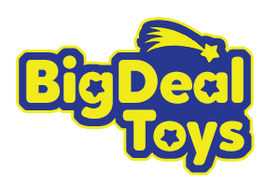Starting school is a big deal for all those involved and is certainly an Early Years milestone which will be remembered for a lifetime especially by us adults!
As the Summer begins to wind down and you start to think more about what lies ahead for your little one at school, take a minute to read though this blog for ideas you can incorporate at home into daily playtime, to help start to build concentration stamina and in turn help to set your child up for the best possible start to their educational journey.
Why is concentration important?
Concentration is an essential cognitive skill which forms the basis of all learning. In essence this skill enables us to focus, absorb new information and apply these skills to strengthen future knowledge. This is a vital skill for our children who are beginning to delve in to the world of education. Concentration however is a really tricky skill for young children to master and is something that can be worked on at home to help promote a readiness to learn.
How does play help improve concentration?
The power of play is widely underestimated and is so much more that just something children do to pass the time. Play is how young children learn and make sense of the world around them and it has a wide positive impact on cognitive, social, physical and emotional growth and development. Playing enables children to have fun and become completely immersed in activities. This in turn will lead to sustained concentration and will enable them, without realising, to develop a further wealth of skills, all in which will go on to help them in the classroom setting.
Practical play ideas for at home to help develop concentration
Turn taking games
Playing turn taking games with your child at home, is a great way to help build and develop sustained mental effort and concentration. This style of game helps to support an understanding of sharing and taking turns and promotes communication, problem solving and critical thinking skills which are all brilliant skills to be developing with our little ones.
One turn taking game my son absolutely loves to play together is Dominoes – this is a game that can be differentiated for different abilities and can grow with your child's cognitive development. We introduced this turn taking game, starting with picture dominoes (which my son still loves to play today) and we have now elevated this game to number dominoes too which also help to develop number recognition and counting skills which are all skills being developed in the classroom too!
Memory games
Memory games are another great genre to play at home with your little ones. Games such as Matching Pairs is something that can be played with the whole family or something that can be set up for independent play too. There is a whole host of different matching games to choose from, from Domestic Animal Match, Holly's Phonics, Number Match Eggs, Touch & Match Board and many more, all of which can be used as great learning opportunities and promote communication skills. Memory games are a great way to develop pattern recognition, patience and persistence skills as well as sustained attention and concentration which are all valuable life skills going forward and all skills which are great to develop in your child before they start school.
Physical activity
Physical activity is something that helps to boost mood and is a great form of stress relief for our little ones. It is something that my little boy absolutely thrives with and is an activity we try to structure in to our playtime every day.
One of our favourite physical activities is setting up obstacle courses. These can be created both inside and outside and the stages of the obstacle course can be adapted to the environment you are playing in. This is perhaps one of the easiest and simplistic games we play at home and can be combined with the added bonus of academic challenge, depending on what items you choose to use within your set up. We generally use lots of common household items to create different engaging courses for our little one such as: cushions, masking tape, balls, bowls etc and often use our phonics and number flashcards as added learning opportunities along the course.
As your child navigates the courses you have built, they develop their planning and sequencing, strategic thinking and co-ordination skills. All combined with the added bonus of sustained concentration. To change this up a little bit, you can challenge your child build their own obstacle courses or a course designed for you. This enables them to develop their creative skills and communication skills and can help them foster a sense of independence too.
To conclude, play is something that happens every day, in every household and fosters the fundamental concentration skill, which as we know, is the basis of all future learning. Have a go at playing some of the games mentioned above with your child and spend the rest of the summer exploring different play activities together! Remember as long as your child is engaged, challenged and most importantly having fun, concentration skills will be developed. Developing this skill with your little one will really help set them up brilliantly for the exciting academic journey they are about to embark on!

